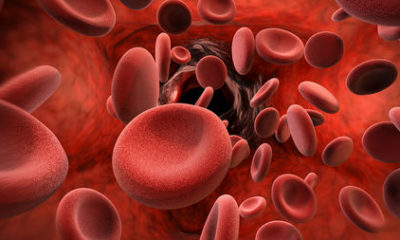Medical & Pharma
Rise in Burn Injury Cases due to Unsupervised Steam Inhalation among Children

- More than 10 children with severe burn injuries were admitted to the hospital amidst the pandemic, says doctors at Columbia Asia Hospital, Whitefield.
- Ever since the advent of the pandemic, steam inhalation has been considered by many as a prophylactic measure to prevent coronavirus infection.
- Traditionally in India, this has been practiced for common flu and nasal congestion.
- Steam inhalation is considered effective for a host of respiratory issues. However, it would not be prudent to use this method in children without adequate adult supervision.

Steam Inhalation
7-year-old Aditya Murali (name changed) was unable to sleep properly one night due to a cold and stuffed nose. He woke his mother and she gave him a steam inhaler with hot water to ease the difficulty. Half-asleep Aditya accidentally spilled the hot water on himself and.
He sustained severe burns and was rushed to the Columbia Asia Hospital, Whitefield – a unit of Manipal Hospitals. Post examination at the emergency, he was diagnosed with second-degree scald burns involving both thighs, genital area, abdomen, and hands. He was admitted to the hospital and had to undergo multiple procedures like collagen application and surgeries in the form of split skin grafting and debridement.
A multi-disciplinary team consisting of Dr. Kartik Tallam, Consultant Plastic Surgeon, and Dr. S.P. Senthil Kumar, Consultant Pediatric & Neonatal Intensivist, treated the patient and after full recovery, the patient was discharged from the hospital.

Dr. Kartik Tallam, Consultant Plastic Surgeon, Columbia Asia hospital, Whitefield – a unit of Manipal Hospitals
Dr. Kartik Tallam, Consultant Plastic Surgeon, Columbia Asia hospital, Whitefield – a unit of Manipal Hospitals who treated the child, said, “Aditya was brought to the hospital with over 30% burns. He had second-degree burns and they were more severe because the damage extends beyond the top layer of skin. Superficial scald burns can be treated by collagen application and deep burns will require skin grafting.”
“Pediatric burn treatment involves a long duration of admission and is very traumatic physically and psychologically to the child as well as the family. The subject needs urgent awareness as we see a rise in burn injuries from the steam machines. Adult supervision is a must during steam inhalation in children to avoid such mishaps.”, He continued.
He added that there are long-term sequelae of burns like contractures that require further surgeries, including contracture release and deformity correction. He also said psychological problems like post-traumatic stress disorder, pain disorders, and fear for hospitals are also seen in children on follow-up.

Dr. S.P. Senthil Kumar, Consultant Pediatric & Neonatal Intensivist, Columbia Asia hospital, Whitefield – a unit of Manipal Hospitals
Dr. S.P. Senthil Kumar, Consultant Pediatric & Neonatal Intensivist, Columbia Asia hospital, Whitefield – a unit of Manipal Hospitals, said, “Children’s intuitiveness, limited motor skills and unawareness of danger put them at increased risk of burn injuries. We have treated more than 10 children with significant burn injuries due to steam inhalation since last year.”
“Though steam inhalation may help in some symptomatic relief in nasal congestion, there is no scientific evidence to prove that it will decrease the COVID-19 viral replication. He added that apart from burn injuries, steam inhalation with eucalyptus oil, camphor, or any essential oil may even lead to seizures and encephalopathy in children.”, He continued.
Steam inhalation in children – Dos and Dont’s
- The traditional method of hot water vapor inhalation by covering the face with a towel should strictly be avoided for children.
- Try with a commercially available electric steam inhaler, strictly under the supervision of parents.
- Maintain a safe distance –Keep the steam inhaler at about 10 inches distance.
- Adults must check and ensure that the hot water is not spilling out while children are using.
- It’s best to make children sit with a thick towel on their lap to safeguard them from any spillage.
- Before they start, wait for the steam to take a more regular flow. Bring the face near the nozzle or the steamer mouth only after the steam flow is stable.
- Limit inhalation time up to a maximum of 10 minutes.
- Don’t repeat more than twice a day.
MEDIA RELEASE









































